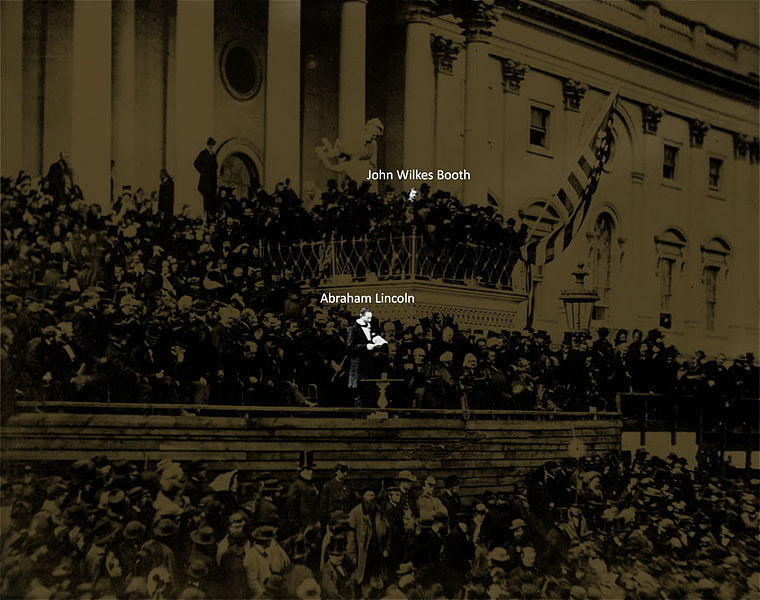Abraham Lincoln was born on February 12, 1809. If he weren’t assassinated and didn’t die for any other reason, he’d be 205 today. In the Old Testament, my field, people live a long time.
Most Americans are familiar with Lincoln’s Gettysburg Address, but there is another speech inscribed at the Lincoln Memorial in Washington, his Second Inaugural address, given on March 4, 1865, just over a month before he died, April 15, 1865. (See the image below of Lincoln delivering the speech, and notice who is listening intently from the balcony, John Wilkes Booth.)
The speech was obviously political but also surprisingly biblical and theological. Just as Lincoln’s life was about to end, the Civil War was almost over, and the speech reflected on divine providence in recent events, with numerous allusions to Scripture. Frederick Douglass told his president afterwards that it was “a sacred effort.”
Speaking of North and South, Lincoln observes, “Both read the same Bible, and pray to the same God; and each invokes his aid against the other.”
He continues, “It may seem strange than any men should dare to ask a just God’s assistance in wringing their bread from the sweat of other men’s faces (allusion to Gen. 3:19), but let us judge not that we be not judged” (allusion to Matt. 7:1).
While speaking about justice and 250 years of “unrequited toil” piled up by slave owners’ over the course of American history, he was still able to be gracious and humble in his words, granting that God was the ultimate judge: “the judgments of the Lord are true, and righteous altogether” (Psalm 19:9).
Lincoln concludes, “With malice toward none; with charity for all; with firmness in the right, as God gives us to see the right…allusions to Psalm 147:3 and James 1:29…to do all which may achieve and cherish a just and lasting peace, among ourselves, and with all nations.”
From our perspective of long speeches and boring sermons, Lincoln’s address was shockingly short, only 701 words, about 7 minutes long.
God give us Lincoln’s wisdom, his brevity, and his ability to connect Scripture to our contemporary context to confront injustice and enslavement.

